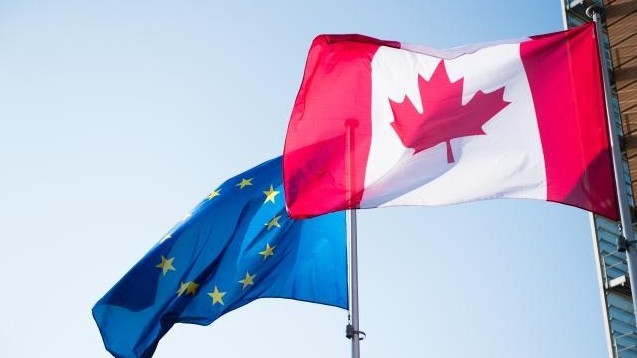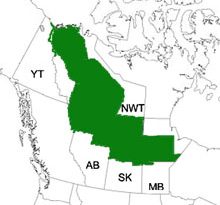Canada joins Horizon Europe to boost climate research collaboration

Canada has officially joined Horizon Europe, a European Union research and innovation programme, saying it’s an important step towards strengthening global cooperation between scientists and scientific institutions.
The agreement was signed on Wednesday by Iliana Ivanova, the EU Commissioner for Innovation, Research, Culture, Education and Youth, and Francois-Philippe Champagne, Canadian Minister of Innovation, Science and Industry.
“Canadian scientists, researchers and innovators will have new opportunities to work with international partners and play a bigger role in solving some of the world’s biggest challenges, like climate change,” Champagne said in a statement.
“These kinds of collaborations are not just beneficial; they are essential in today’s interconnected world.”
This agreement allows Canadian researchers and organizations to take part in the programme on the same footing as their EU counterparts.
Groundwork laid in November
EU Commission President Ursula von der Leyen and Canadian Prime Minister Justin Trudeau, previously concluded negotiations for Canada’s association with the programme at the EU-Canada Summit in November 2023.
Since then, even though the agreement hadn’t been officially signed, Canadian researchers and organizations were eligible to apply for Horizon Europe projects through a transnational agreement.
So far, Canadian organizations are already involved in 155 Horizon Europe projects, receiving over €6 million in funding.

Horizon Europe has three main pillars: Excellent Science, Global Challenges and European Industrial Competitiveness (Pillar II), and Innovative Europe.
Canada is mainly involved in Pillar II, but Canadians can also join other parts of the program, like the Marie Skłodowska-Curie Actions for doctoral and postdoctoral training.
Climate challenges needs trans-Atlantic expertise: commissioner
Iliana Ivanova, the EU Commissioner, said Canada’s joining Horizon Europe will help tackle global issues by combining resources and expertise from both sides of the Atlantic. She said this cross-Atlantic teamwork is expected to boost research in important areas like climate action, energy, digital economy, and health.
“With this step, we are strengthening the EU’s ties with trusted partners that have a solid scientific base and a robust track record in research and innovation,” Ivanova said.
“Now we can enable our brightest minds to come together and work on joint solutions for our future.”
Currently, 19 non-EU countries are part of Horizon Europe, including European Economic Area members, candidate countries, and other nations with strong research systems.
Talks have recently concluded with Korea and negotiations are ongoing with Switzerland, Japan, and Singapore.
Related stories from around the North:
Canada: Inuvialuit Community Research Network to boost local studies and jobs, Eye on the Arctic
Finland: River ice and white hares: Finnish scientists study signs of climate change in nature, Yle News
Greenland: Glowing snailfish full of antifreeze proteins found off coast of Greenland, Eye on the Arctic
Norway: Vegetation in Arctic Europe disturbed by mid-autumn thaw, The Independent Barents Observer
United States: Alaska’s fisheries face climate change, costs; fewer youth join trade, The Associated Press



